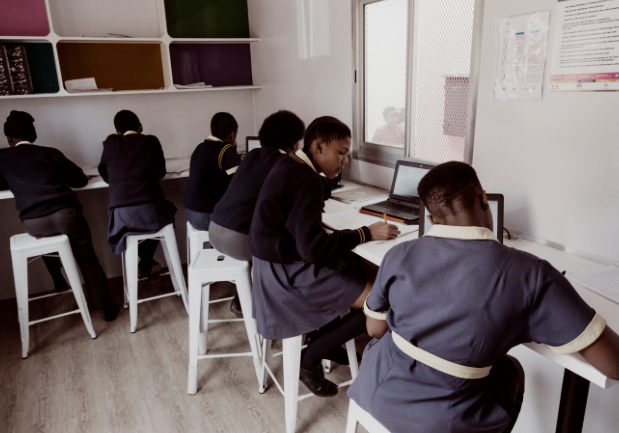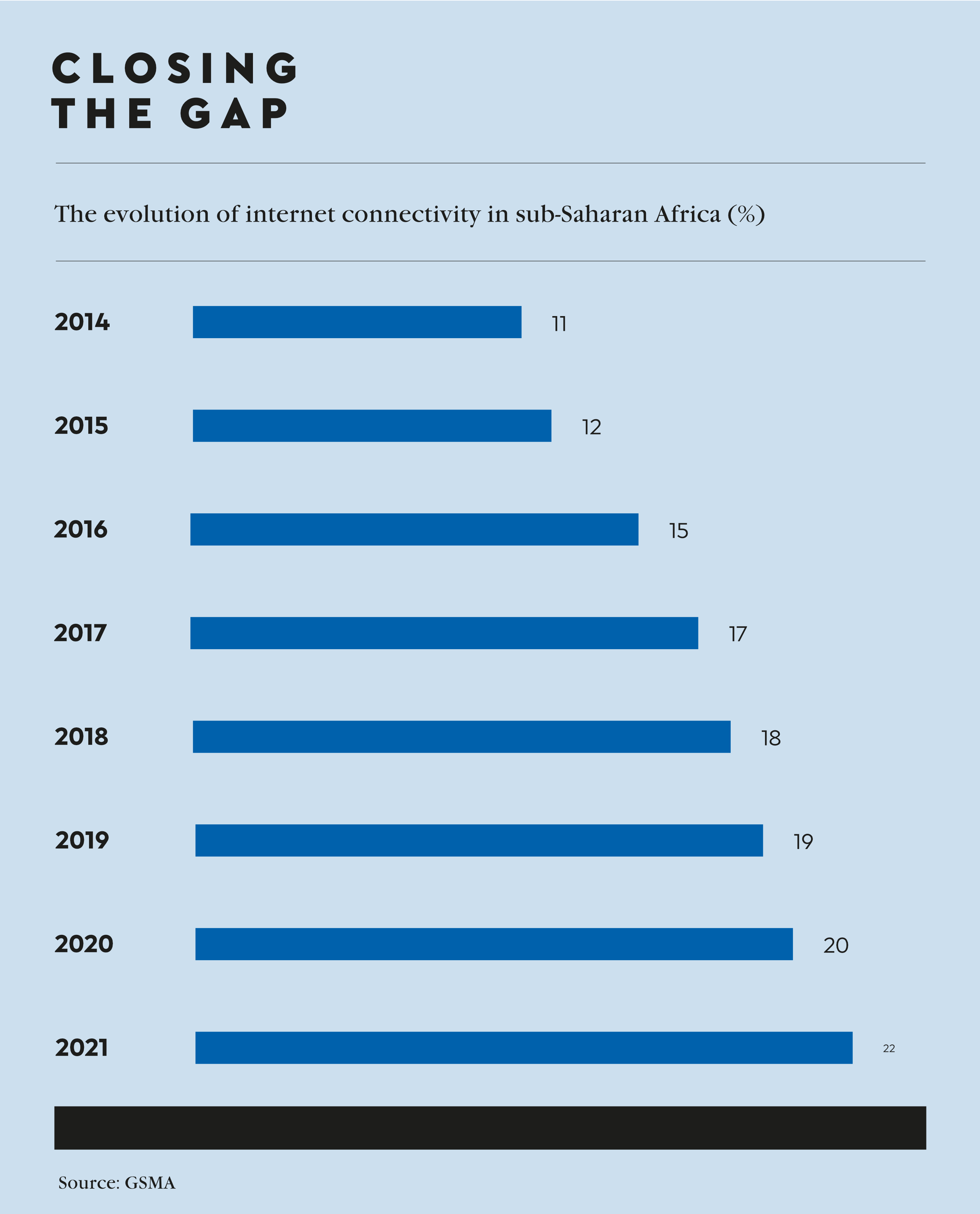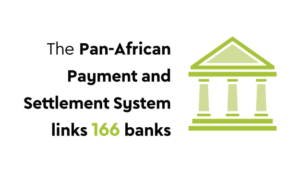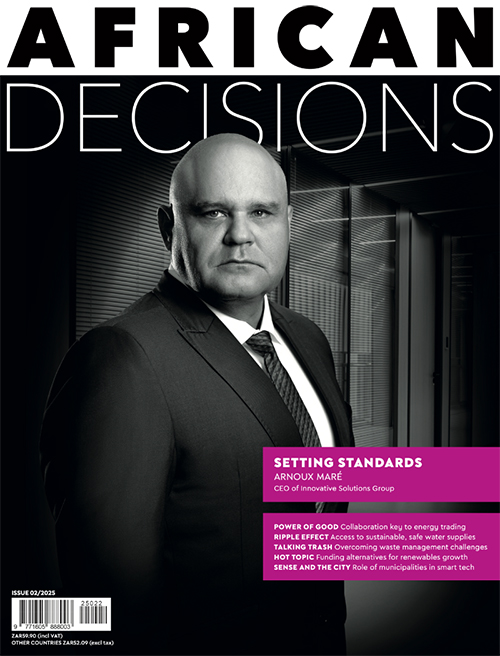‘In the most recent National Household Transport survey, 63% of learners across the country “walk all the way” to school, with those in rural areas more likely to travel on foot due to the lack and expense of available transport,’ according to telco Vodacom. ‘A pair of shoes can help protect feet from the elements, especially in winter, and prevent the risk of injury or infection so that learning is not disrupted and is a more comfortable experience.’
Vodacom’s Walk a Child to School campaign has so far distributed more than 2 000 pieces of footwear to 14 schools in the Eastern Cape province in South Africa, says the company.
‘Learners throughout South Africa often must walk long distances to school every day. Imagine this challenge barefoot, as many parents are unable to afford proper footwear. At Vodacom, we believe in education as an empowering tool for young people in this country, but without access to essentials, how can learners concentrate, perform well and want to stay in school?’
On a more conventional level as far as education goes, the Vodacom Foundation’s Youth Academy has been training young South Africans in ICT skills. The foundation says just more than 2 000 unemployed youngsters will be trained by the end of the 2023/24 financial year with the goal of training 4 000 by 2025.
‘The Youth Academy programme includes 12 months of training. At the end of the year, there is potential for these graduates to be offered internships and workplace experience. Critically, Vodacom has started absorbing some of the Youth Academy graduates into some of its programmes as paid ICT youth co-ordinators and training facilitators,’ Vodacom said in a statement. ‘Our hope is that these graduates will use the ICT skills they’ve acquired to contribute to the economy by seeking employment, and that they will use their learnings to improve their circumstances and the lives of those around them by pursuing further education,’ according to Takalani Netshitenzhe, external affairs director for Vodacom South Africa.
‘We want these graduates to explore entrepreneurial opportunities so that they can one day provide much-needed jobs to others. Without inclusive, equitable and high-quality education, our young people will be left behind.’
In a world that thrives on technology, access to the digital realm has become a vital lifeline for progress and development. However, this access remains elusive to many impoverished communities in Africa. The glaring disparity in technology adoption poses a significant obstacle to the socio-economic growth of these underdeveloped areas. While the private sector has often been criticised for its perceived detachment from societal issues, a wave of transformative CSI initiatives has emerged, led by technology companies determined to bridge the digital divide, which affects rural communities in particular.
Lack of infrastructure, limited electricity supply and the high cost of connectivity have hindered the penetration of technology away from the cities, but bringing technology to underserved areas empowers individuals to participate in the digital economy. Access to the internet opens up opportunities for e-commerce, online entrepreneurship and remote employment. As residents engage in economic activities, it stimulates local businesses, fosters job creation and, ultimately, uplifts the entire community.

Project Isizwe aims to do just that. This year will be the 10-year anniversary of the organisation, which began as a means to bring free internet to underprivileged areas in South Africa.
‘Providing and diversifying economic growth goes hand-in-hand with increasing access to the internet and ensuring these upwardly mobile populations in the high-growth mass market have community development opportunities in spaces where retail and connectivity merge,’ the organisation said. In one of its programmes Project Isizwe has connected free WiFi at seven shopping centres across the country.
‘Each month, more than 30 000 economically active shoppers in the townships of Thulamahashe, Mahikeng, Gqeberha, Diepsloot, Katlehong, Orange Farm and Heidelberg connect to 500 MB of free daily WiFi, ensuring that as employment and economic activities thrive in these communities, so citizens are equitably able to participate in the online world,’ it said.
Project Isizwe has also brought the internet to isolated communities – for instance, 70 hotspots that provide free internet access to mine and renewable energy workers and their families in the Mpumalanga, North West and Northern Cape provinces.
The MTN Group, which has 289 million customers in Africa and the Middle East, has several CSI projects, with education at the core of interventions because it has prioritised ICT as one of the most powerful means by which to uplift individuals and communities. Through its MTN SA Foundation, it has worked at ‘digitalising the South African education sector, particularly the investment into state-of-the-art multimedia centres and the development of the MTN Online School e-learning platform’.
‘By 2022 we had invested in over 350 multimedia centres in disadvantaged communities in our aim to close the digital gap within society, and ensure that we connect the unconnected,’ MTN SA Foundation’s GM, Arthur Mukhuvha, told Business Day Empowerment. ‘This is aligned to our Ambition2025 strategy, which highlights that everyone deserves the benefit of a modern connective life. As a result, thousands of school learners now have access to digital tools that are essential in the new digital world. All our strategies are centred on access, be that to funding, technology, markets and skills. This is the way MTN SA Foundation opens up a world of possibilities for those who dare to dream.’
At the end of August, the MTN SA Foundation began its second annual MTN Women in Digital Business Challenge, which runs until the end of the year and offers 10 women ‘digital pioneers’ a prize of ZAR100 000 each to be used for ‘working capital, business development, purchasing tangible assets, and investing in business technology hardware, software, or IP’.
To help entrants change the future face of the tech industry, the foundation will be accepting applications and vetting them through its implementation partners.
‘From these initial applications, the women compete in a two-day “pitching competition”. During these two days, they showcase their businesses and compete for a place in the “Top-10”. Following this, the entrepreneurs enter a four-month mentorship journey in which they receive expert advice on how to grow their businesses and the adoption of marketing strategies,’ according to the foundation.
‘In addition, they are also given help to ensure that the financial and business management skills they require to run a successful small business are improved. Once graduating from these programmes, each of the 10 successful candidates receive their ZAR100 000 funding for developing their businesses,’ according to the foundation.
MTN SA says it hopes the example of the women ‘will inspire others and encourage other women to start businesses, or seek job opportunities within the IT sector’.
Through innovative projects and products, these and other CSI initiatives by the ICT industry are enabling economic growth, fostering education, nurturing local talent and improving healthcare access in rural and underserved urban areas.
As the private sector continues to take responsibility for much of South Africa’s societal development, it allows for a more equitable, connected and prosperous country to emerge.


















